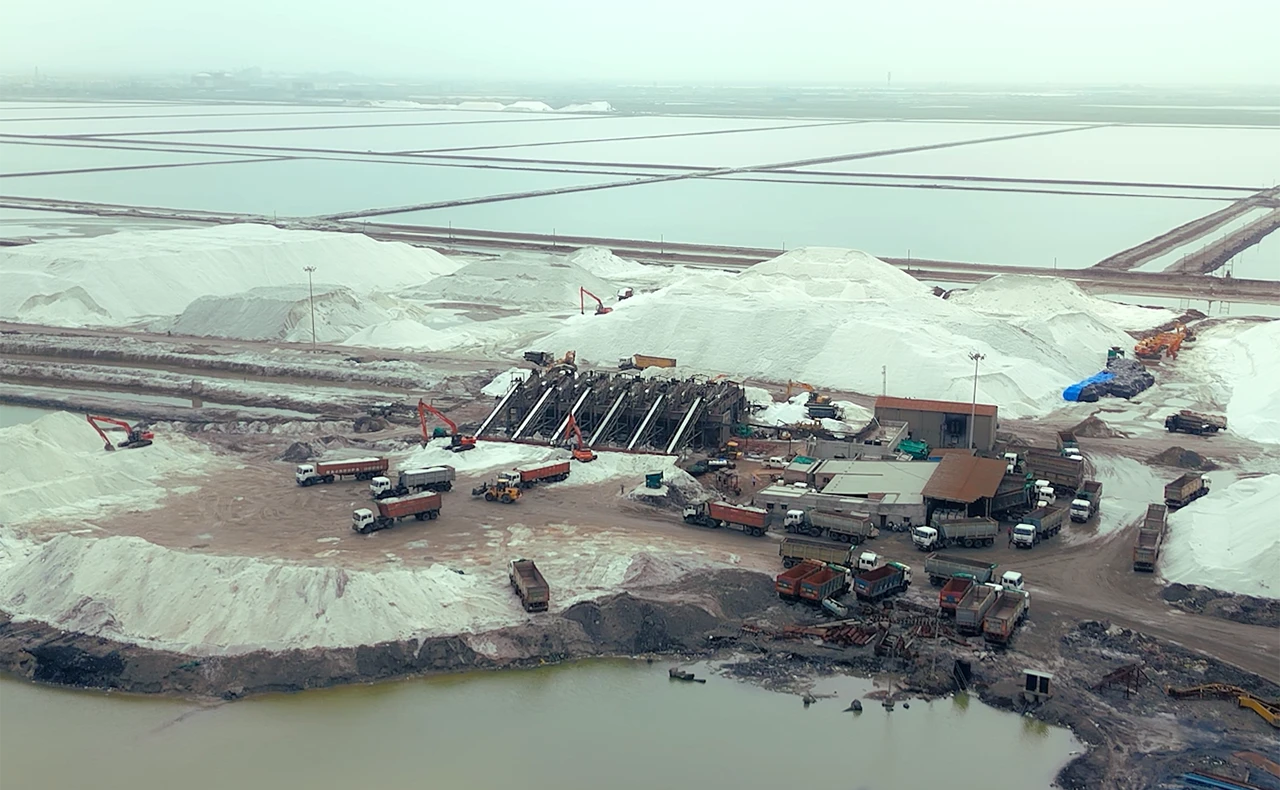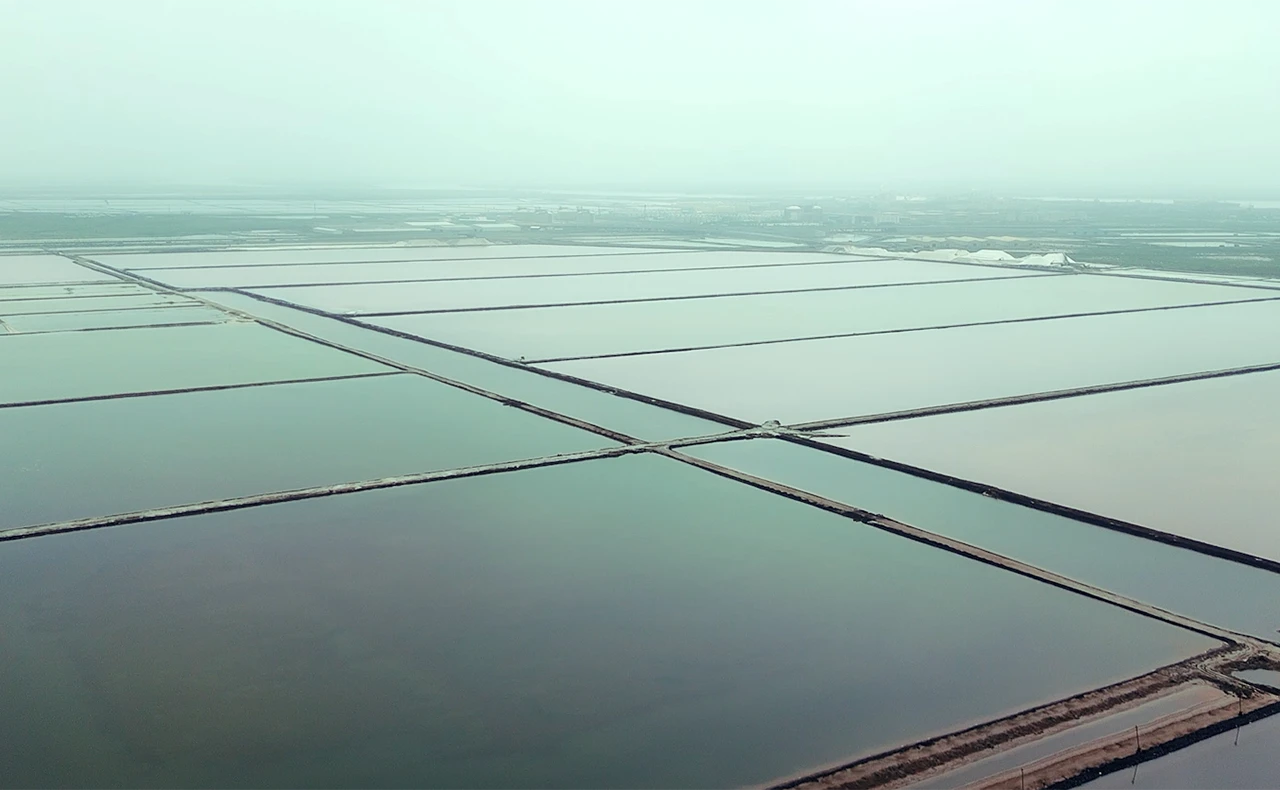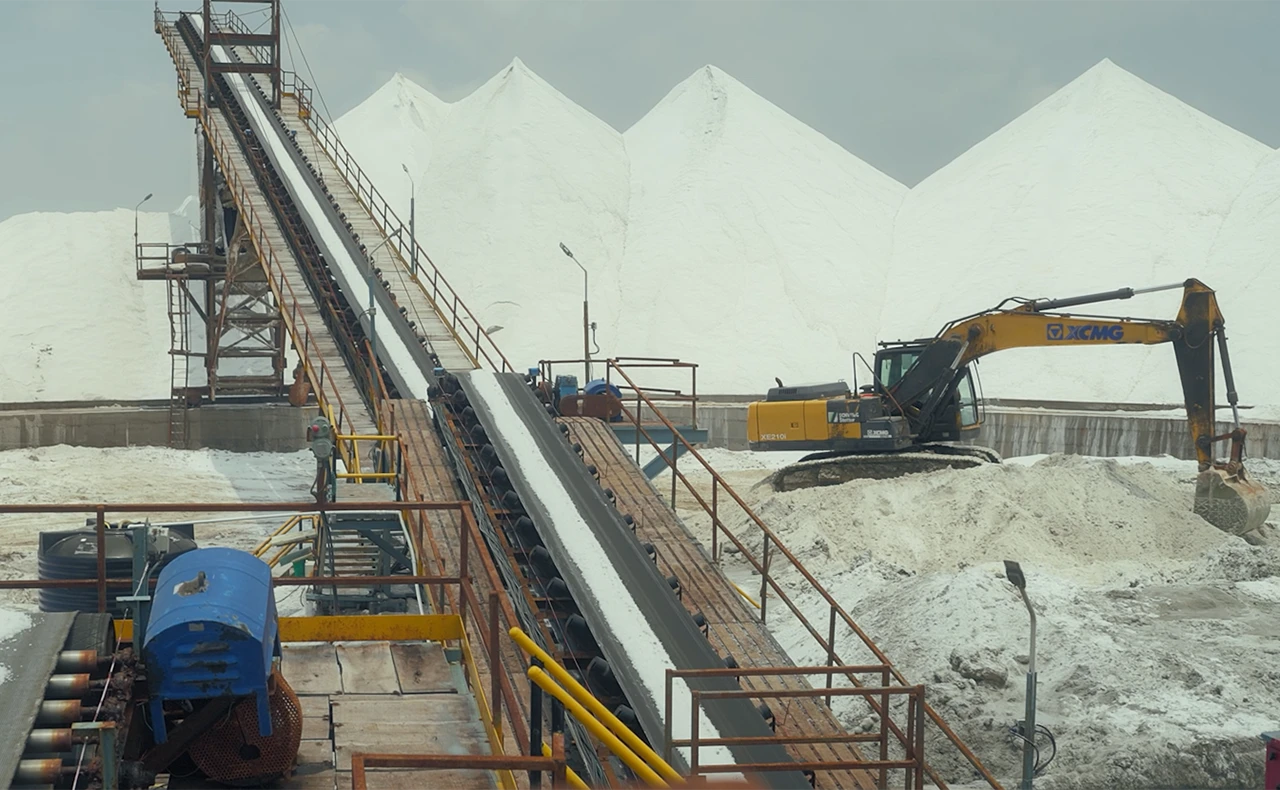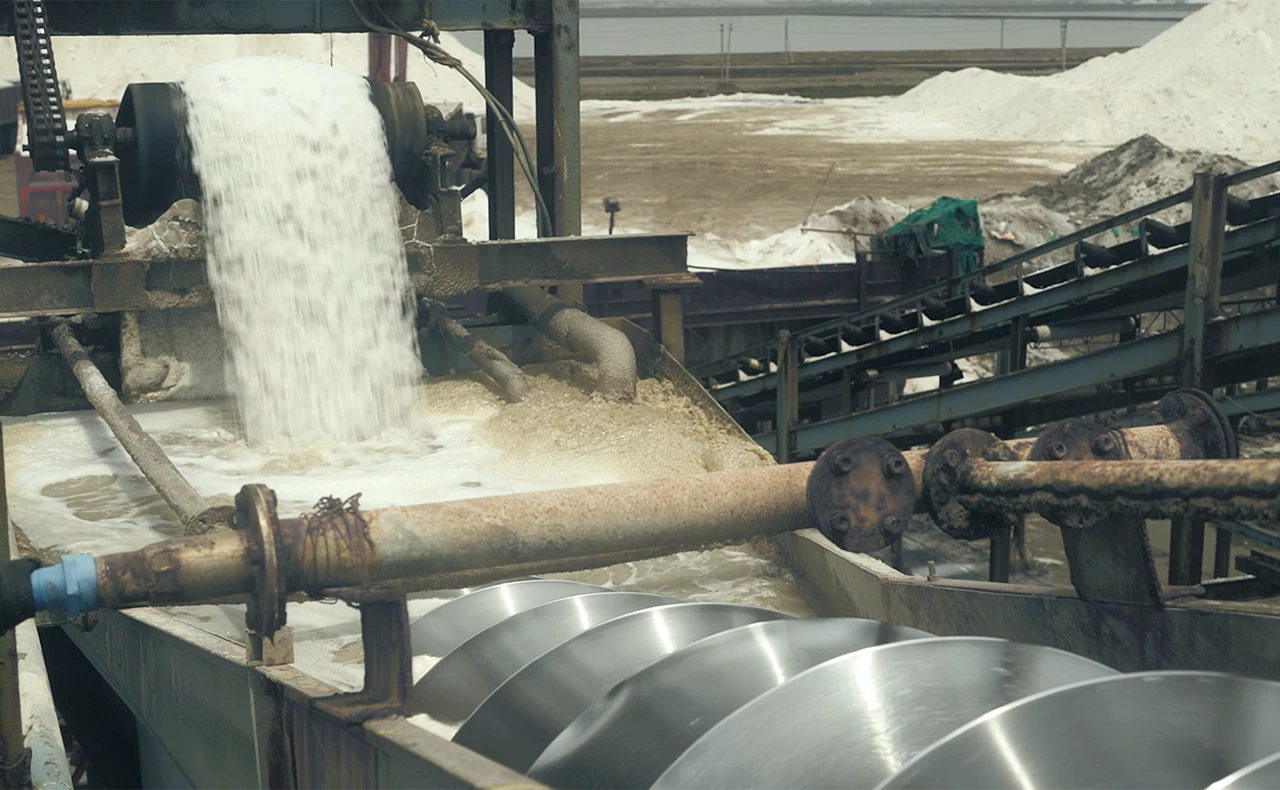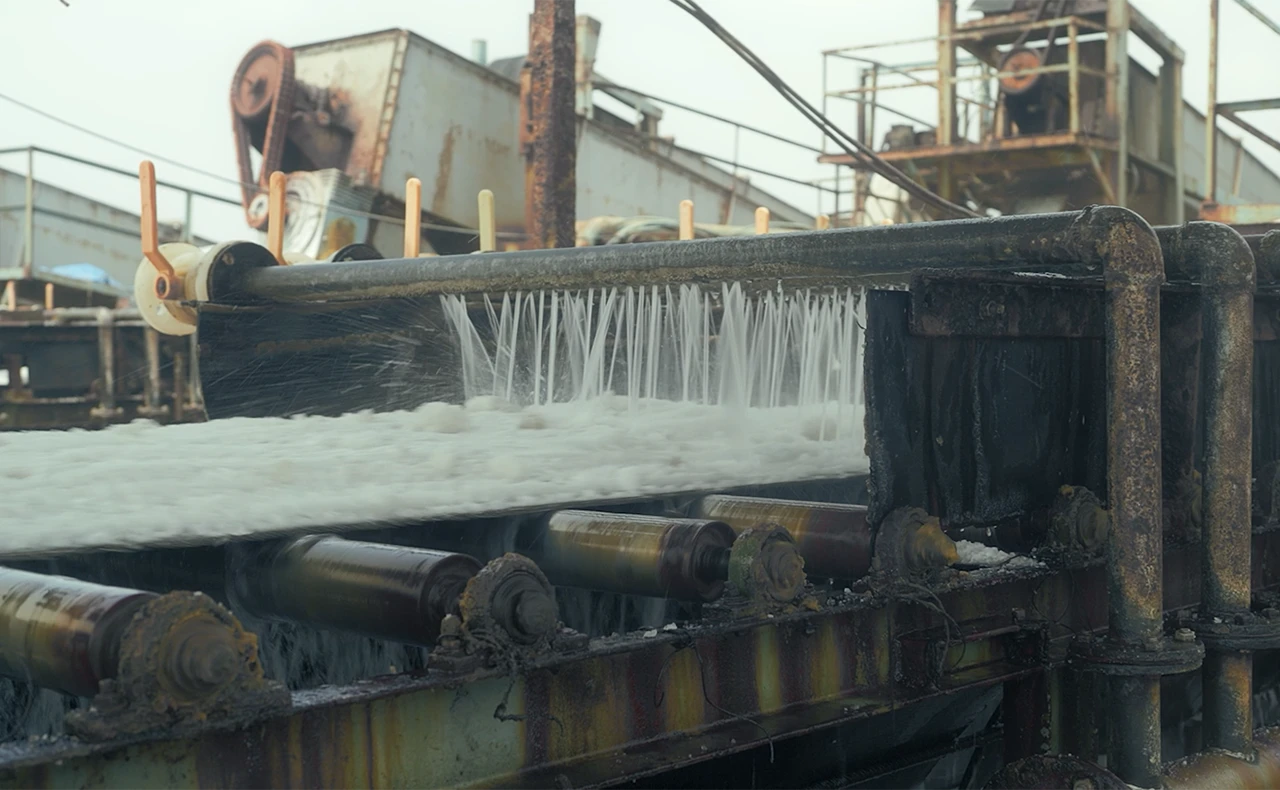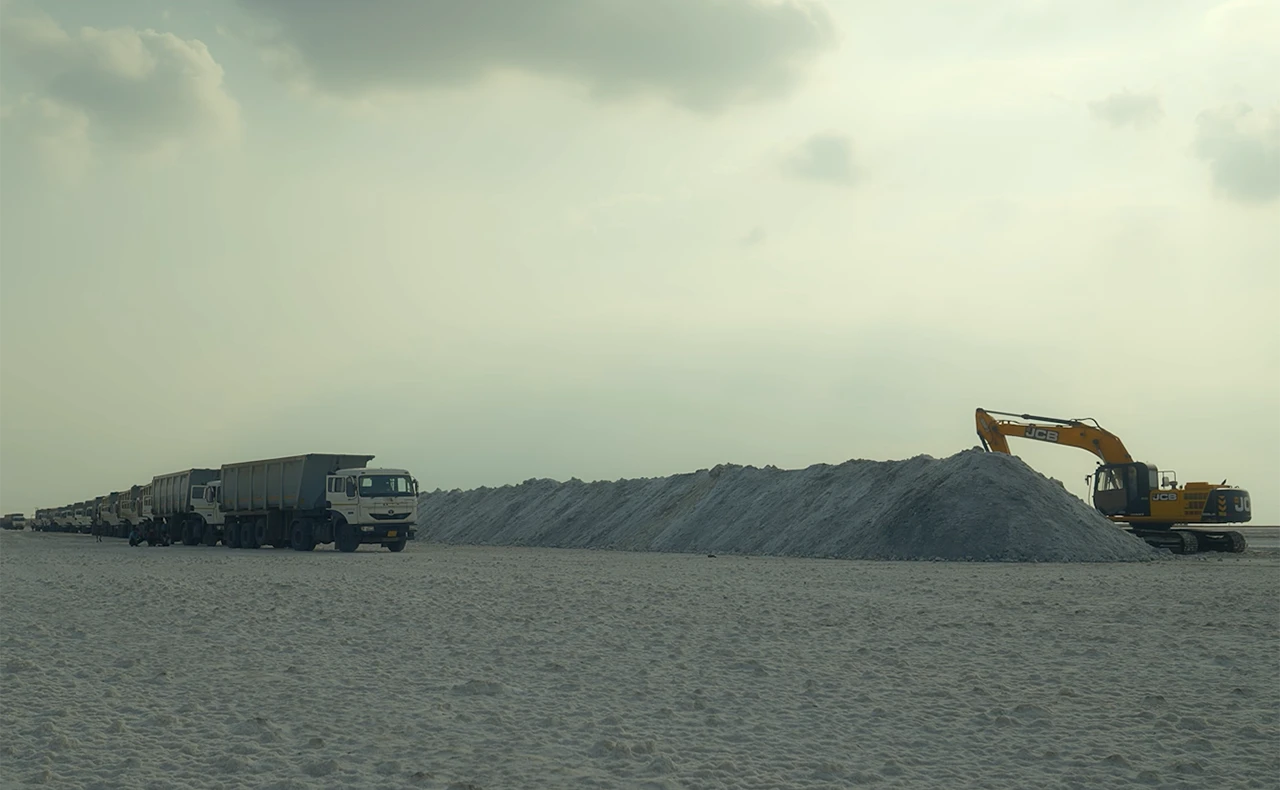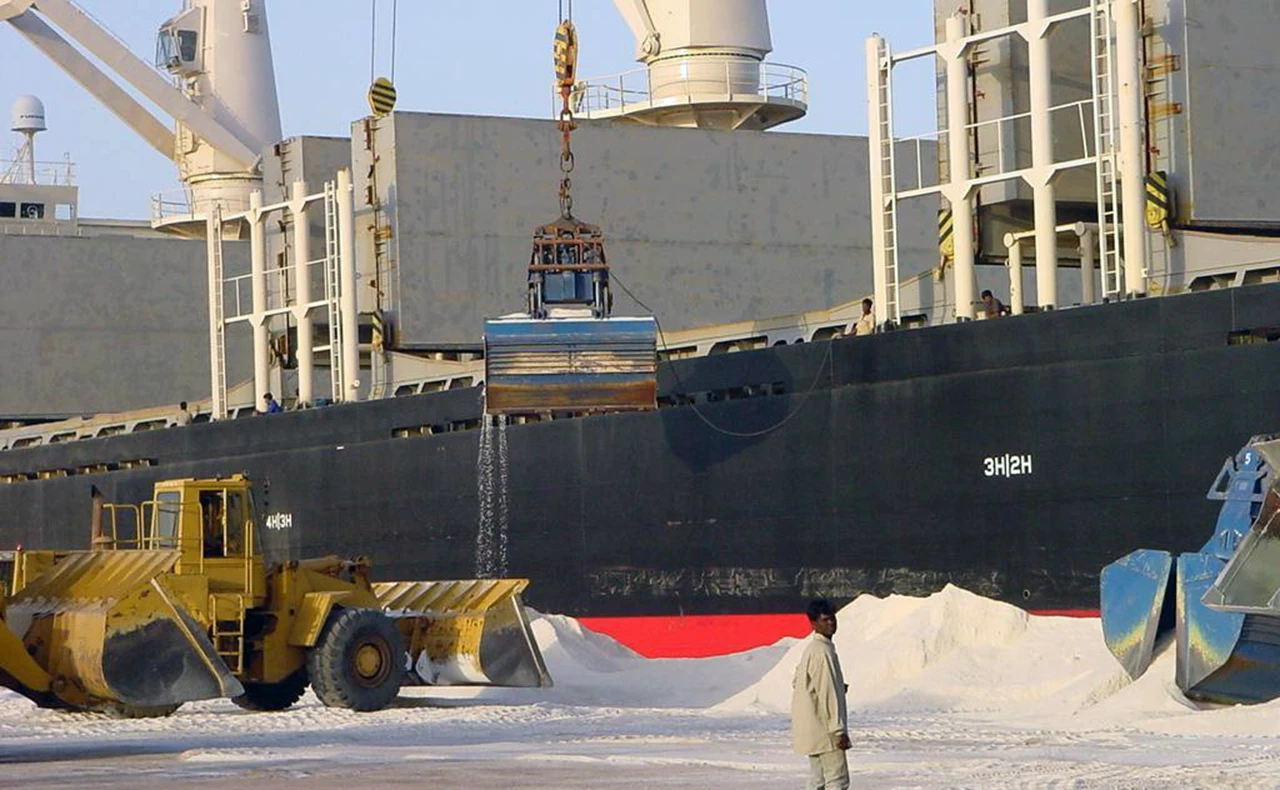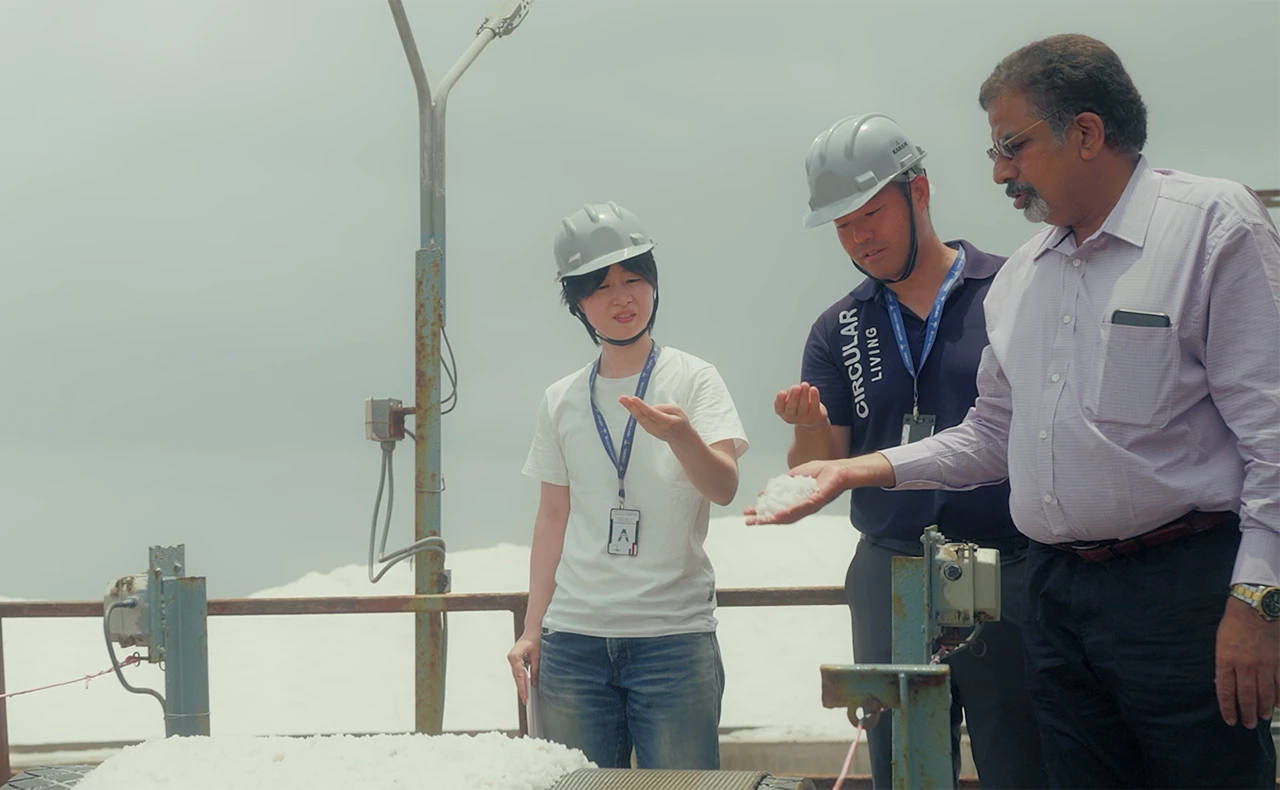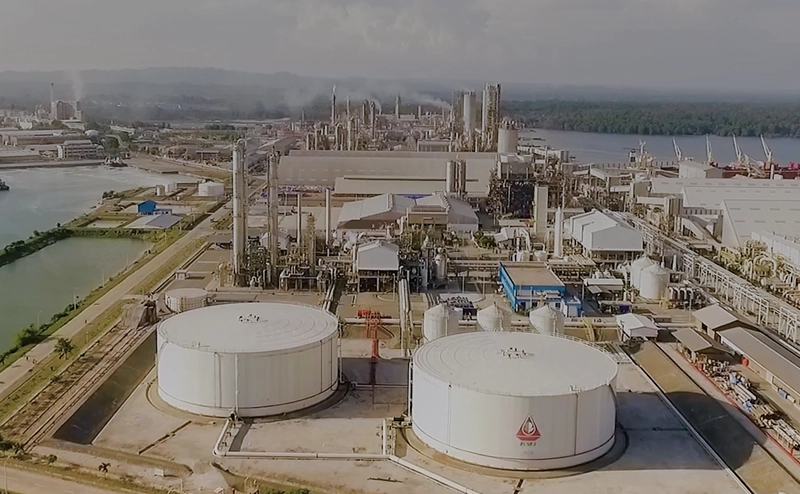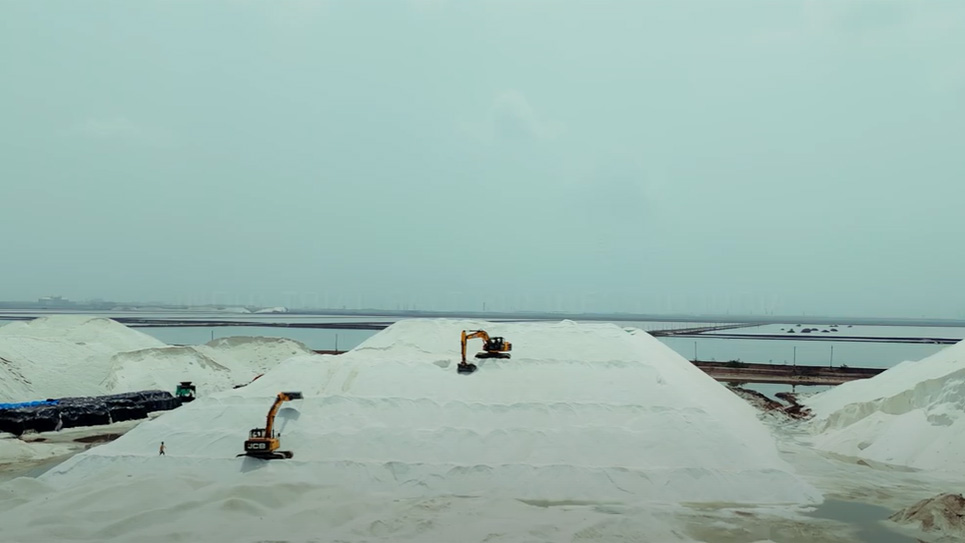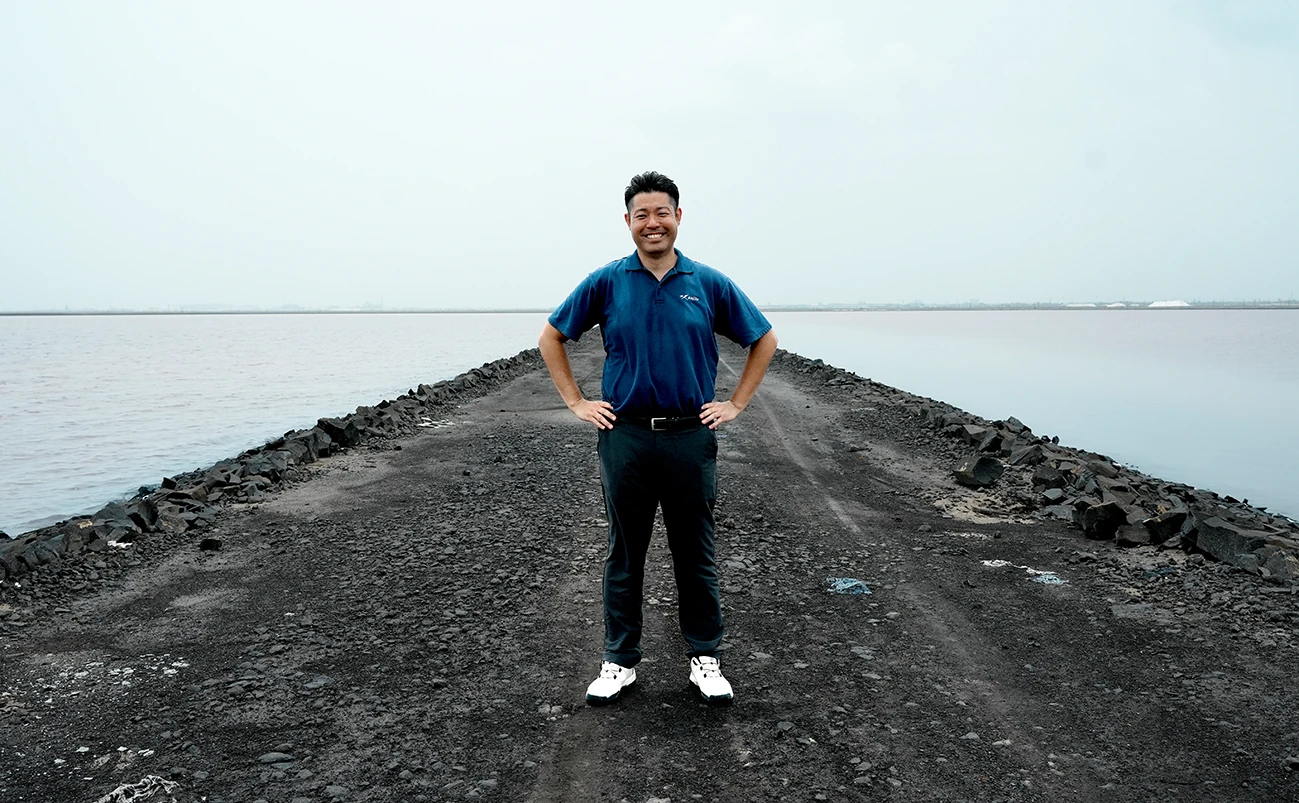Sojitz’s Industrial Salt Business in India:
Supplying a Key Building Block of Global Industry
Sep. 8, 2025
Sep. 8, 2025
Salt is an essential building block of modern life. Although commonly viewed as a seasoning, salt’s applications extend beyond the food we eat. A product called industrial salt makes up over three fourths of the world’s total supply of salt and serves as a raw material in the creation of many industrial products. Most industrial salt used in Japan is imported from overseas, and Sojitz’s predecessor companies Nissho Iwai Corporation and Nichimen Corporation were also involved in the industrial salt import business. Today, Sojitz carries on this legacy through its business importing and supplying industrial salt produced in India. Sojitz holds a leading share of the Japanese market in terms of volume and its business accounts for over 17% of all international industrial salt sales in Asia. This feature provides an in-depth look at Sojitz’s legacy and extensive track record in the industrial salt business.
- Sojitz is continuing to grow its sales volumes with suppliers in India, the world’s third largest producer of industrial salt after China and the U.S.
- By procuring product from multiple salt fields, Sojitz mitigates the potential impact of natural disasters and ensures the stable supply of industrial salt
- Sojitz works with its Indian suppliers to provide low-cost, high-quality industrial salt to the Asia market in order to meet client specifications and needs in the manufacturing industry
The global industrial salt market totaled roughly 300 million tons as of 2023 and is anticipated to see continued growth linked to expanding GDPs around the world due to stable demand for industrial salt as a raw material used in manufacturing both daily-use consumer goods and industrial products. Sojitz primarily supplies industrial salt in Asia, a market that imports about 28 million tons of the worldwide total per year and has an average annual growth rate of roughly 3%. While salt is often considered a food ingredient, the largest consumer of salt in Japan is the chlor-alkali industry, where industrial salt is used as a raw material or reactant in the creation of a wide range of chemical agents. This industrial application of sodium chloride accounts for roughly 80% of Japan’s salt market, and the remaining portion is made up of other applications including table salt and de-icing agents. In terms of global salt usage, industrial salt is by far the most prevalent application.
China is the world’s largest producer of industrial salt, followed by the U.S., then India. Australia and Mexico are also major exporters to the Asia market. Together, these nations with their expansive land areas support the global production of for industrial salt.
Sojitz was formed from the merger of Nissho Iwai and Nichimen in 2004, but both predecessor companies had a presence in the industrial salt industry prior to the merger. Nissho Iwai held shares in Dampier Salt Limited, a salt producer located in Western Australia, and Sojitz retains a 10% stake in the company to this day. Nichimen’s industrial salt business met roughly 40% of domestic demand in Japan in 1968, with imports from the Middle East, Egypt, India, and Mexico. Nichimen began handling Indian industrial salt in 1988, and this business became the foundation for Sojitz’s industrial salt operations in Asia today.
Sojitz handles four to five million tons of industrial salt per year (as of 2024) for clients in Japan, South Korea, Taiwan, and Indonesia—a trade volume that comprises about 20% of all international industrial salt trade in Asia. Sojitz has secured a spot as one of the largest players in the industrial salt sphere among Japan’s general trading companies, with over half a century of experience spanning both Nissho Iwai and Nichimen business as well as the wide-ranging client network the company has cultivated.
Industrial salt is made using natural processes. Sojitz handles salt created though solar evaporation, a method that relies heavily on local temperature and weather conditions. It is therefore essential for Sojitz to maintain a supply framework that accounts for potential climate change-related natural disasters. In the solar evaporation process, seawater or natural salt brines are pumped to salt fields where the liquid is evaporated by the sun and wind, allowing the salt to crystallize. This method primarily uses renewable energy, resulting in a relatively low environmental impact compared to other processes such as rock salt extraction or vacuum evaporation. However, solar salt production requires very specific conditions. The salt fields must be located in an area with large expanses of land and a climate that is very hot and dry with little rainfall. Naturally, these requirements limit the number of regions that are suitable for the solar evaporation method.
Sojitz’s suppliers operate their production sites in a region that meets all the criteria—the state of Gujarat in Western India. Although India has a massive land area (roughly nine times the size of Japan), only a select few areas are well suited for salt production, and nearly 90% of India’s industrial salt production takes place in Gujarat. Sojitz works with three suppliers across five separate salt field sites, and the salt harvested from each site is shipped out from four different ports. By utilizing multiple salt fields and shipping ports, Sojitz works to minimize the impact that heavy rains and other natural events might have on its outbound shipments.
Solar salt production is both time and labor intensive. The process of seawater concentration and salt crystallization takes one to two years. Once the salt has developed, salt field operators will need at least one to two months to then harvest and prepare the final product for shipment. Sojitz provides guidance to its suppliers on an ongoing basis to continuously improve product quality and meet the rigorous standards of its clients. This process allows Sojitz to secure a reliable supply of optimal industrial salt product.
As industrial salt is a natural product that is shipped in bulk, it is possible for contaminants to get mixed in with the salt during the production and transport process. Salt producers use a cleaning process to remove any impurities, and each batch is passed through mesh filters before being loaded onto the cargo ships. These measures are essential for ensuring the quality of the industrial salt.
Industrial salt is a raw material that plays a foundational role in many industries, and any increase in salt prices can lead to rising costs for products across a range of sectors. Sojitz implements a variety of strategies to mitigate any fluctuation and provide stable pricing to its clients.
With over 30 years of experience supplying industrial salt to the Asia market, Sojitz has cultivated a robust network that includes most of the key buyers in the region. In addition, Sojitz directly manages its ship chartering operations and has established business relationships with numerous shipping companies. Shipping expenses determine a large percentage of the final sales price of industrial salt, and reliable ship chartering therefore plays an essential role in ensuring a stable supply. Sojitz holds long-term contracts with roughly 10 shipping companies and maintains business relationships with over 40 companies in total. Sojitz has also established multiple storage facilities within Japan to guarantee a stable supply to domestic manufacturers.
Sojitz’s strengths in the industrial salt business lie in its extensive supplier network and the relationships it has cultivated with shipping companies in the region in order to create the ideal conditions for stable supply. Sojitz’s strong presence in this field also paves the way for business partners in a wide range of industries to gain a competitive edge and further stabilize their operations.

